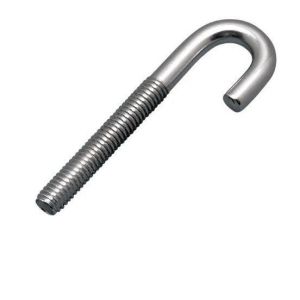
About
Bent J-Bolts are a type of fastener characterized by their distinct "J" shape, where one end is bent into a hook and the other end has a threaded portion. These bolts are commonly used for anchoring or securing components in construction, industrial, and mechanical applications.